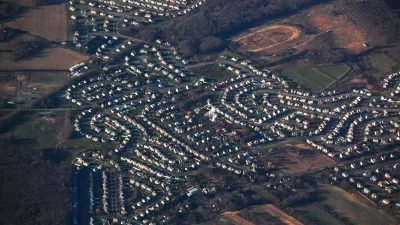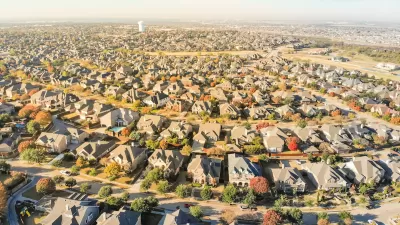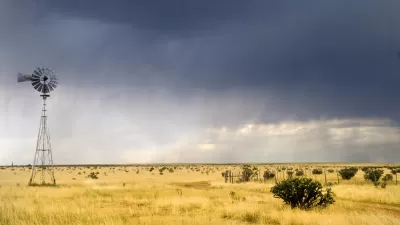According to a recent report, the self-sufficiency of agriculture in the Washington, D.C. region is declining. Encroachment from suburban sprawl, driven by a region-wide housing crunch, is one causal factor.

Farm acreage and food production in the Washington region have been declining for decades, according to report from the Metropolitan Washington Council of Governments (link in article).
"Prior to consolidation and other changes in the agriculture sector," Stephen Hudson writes, "parts of the region, such as the Delmarva Peninsula, were historically substantial producers of food. Today, farmers in our region face a number of challenges. For one, farming is a high-risk business with low profit margins. Second, the region's farmers are aging rapidly."
Then there's the high price of land, which has in some cases led to the development of suburban subdivisions on former agricultural plots. The report also discusses zoning, which can restrict farmers who want to construct tall barns and silos, or prevent them from carrying out certain productive activities.
"Perhaps the most important thing that the report touches on is the conflict between maintaining farms and increasing housing for people in a region badly crunched for homes," Hudson writes.
FULL STORY: Sprawl doesn’t just hurt cities, it hurts farmers too, a local report shows

Maui's Vacation Rental Debate Turns Ugly
Verbal attacks, misinformation campaigns and fistfights plague a high-stakes debate to convert thousands of vacation rentals into long-term housing.

Planetizen Federal Action Tracker
A weekly monitor of how Trump’s orders and actions are impacting planners and planning in America.

In Urban Planning, AI Prompting Could be the New Design Thinking
Creativity has long been key to great urban design. What if we see AI as our new creative partner?

Pedestrian Deaths Drop, Remain Twice as High as in 2009
Fatalities declined by 4 percent in 2024, but the U.S. is still nowhere close to ‘Vision Zero.’

King County Supportive Housing Program Offers Hope for Unhoused Residents
The county is taking a ‘Housing First’ approach that prioritizes getting people into housing, then offering wraparound supportive services.

Researchers Use AI to Get Clearer Picture of US Housing
Analysts are using artificial intelligence to supercharge their research by allowing them to comb through data faster. Though these AI tools can be error prone, they save time and housing researchers are optimistic about the future.
Urban Design for Planners 1: Software Tools
This six-course series explores essential urban design concepts using open source software and equips planners with the tools they need to participate fully in the urban design process.
Planning for Universal Design
Learn the tools for implementing Universal Design in planning regulations.
planning NEXT
Appalachian Highlands Housing Partners
Mpact (founded as Rail~Volution)
City of Camden Redevelopment Agency
City of Astoria
City of Portland
City of Laramie





























